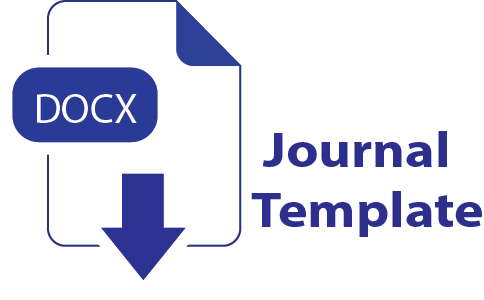COLLABORATIVE GOVERNANCE DALAM PENGEMBANGAN DESA WISATA BUDO KABUPATEN MINAHASA UTARA
Abstract
The development of a tourist village is expected to be equitable in accordance with the concept of sustainable tourism development. Tourism potential exists in Budo village in the form of natural tourism in the form of beaches, underwater and mountains; Cultural Tourism in the form of arts, customs and traditional culinary; Educational Tourism in the form of mangrove forests and underwater potential. Budo village also has handicrafts in the form of Ginto crafts that can be used as souvenirs typical of Budo village. The community has also prepared a home stay for visiting tourists. Collaborative governance is something interesting to study in the development of Budo tourism village, because it involves various local government organisations, Kerta village community, private sector and others. This research uses a qualitative method with a descriptive approach through determining informants using non-probability sampling techniques by purposive sampling. The results of this study are where the management of Budo Tourism Village still only relies on the community, the contribution of the government and the private sector is still minimal. So it still needs to be improved again for the role of other stakeholders.
References
Hausler N, “Planning for Community Based Tourism – A Complex and Challenging Task. The International Ecotourism Society,” 2005.
A. F. Rachman, R. Suprina, S. Tinggi, and P. Trisakti, “Pendampingan Desa Cipasung Menuju Desa Wisata,” J. Pemberdaya. Pariwisata, vol. 1, no. 1, p. 2019, 2019.
S. N. Nafsiah, M. Agustina, V. Sahfitri, and M. Marlindawati, “Eksploitasi Digital Marketing Sebagai Usaha Meningkatkan Pendapatan Di Masa Pandemi Covid-19 Pada Pelaku UMKM Tanaman Hias Hafiz Flower,” J. Pengabdi. Kpd. Masy. Bina Darma, vol. 2, no. 2, pp. 99–108, 2022, doi: 10.33557/pengabdian.v2i2.1725.
Y. S. Lewan, S. M. H. Mengko, and H. M. E. Kumaat, “Pengembangan Desa Wisata Berbasis Kearifan Lokal Desa Budo Kabupaten Minahasa Utara,” J. Hosp. dan Pariwisata Ed., vol. 6, no. 1, pp. 343–352, 2023.
N. Komariah, E. Saepudin, and P. M. Yusup, “Pengembangan Desa Wisata Berbasis Kearifan Lokal,” J. Pariwisata Pesona, vol. 3, no. 2, pp. 158–174, 2018, doi: 10.26905/jpp.v3i2.2340.
A. Mafaza and K. Setyowati, “Collaborative Governance Dalam Pengembangan Desa Wisata,” J. Kebijak. Publik, vol. 11, no. 1, p. 7, 2020, doi: 10.31258/jkp.11.1.p.7-12.
P. N. Yasintha, “Collaborative Governance Dalam Kebijakan Pembangunan Pariwisata Di Kabupaten Gianyar,” J. Ilm. Din. Sos., vol. 4, no. 1, p. 1, 2020, doi: 10.38043/jids.v4i1.2219.
Miles dan Huberman., “Analisis data Kualitatif. (diterjemahkan Ole: Tjetjep Rohedi Rosidi).,” 1992.
S. Jubaedah and O. Fajarianto, “Model Pengembangan Desa Wisata Berbasis Kearifan Lokal Sebagai Strategi Peningkatan Ekonomi Masyarakat Di Desa Cupang Kecamatan Gempol Kabupaten Cirebon,” Abdimas Awang Long, vol. 4, no. 1, pp. 1–12, 2021, doi: 10.56301/awal.v4i1.121.
M. F. Ma’ruf, B. Kurniawan, and R. P. A. G. Pangestu, “Desa wisata: sebuah upaya mengembangkan potensi desa dan meningkatkan pendapatan asli desa,” J. Din. Gov., vol. 7, no. 2, pp. 193–203, 2017.
W. Sari and S. Bakhri, “Pemberdayaan melalui pelatihan dan digitalisasi UMKM dalam peningkatan kesejahteraan masyarakat di masa pandemi covid-19,” IMEJ Islam. Manag. Empower. J., vol. 4, no. 1, pp. 1–18, 2022, doi: 10.18326/imej.v4i1.1-18.
Ahmad Fitra Baiti Rahman, Amil, and Ilham Zitri, “Collaborative Governance Dalam Perkembangan Pariwisata Di Kawasan Senggigi Kabupaten Lombok Barat,” Nusant. Hasana J., vol. 3, no. 2, pp. 144–159, 2023, doi: 10.59003/nhj.v3i2.919.
F. Syah, “Strategi Mengembangkan Desa Wisata,” Pros. Semin. Nas. Multi Disiplin Ilmu &Call Pap. Unisbank Ke-3, vol. 3, no. Sendi_U 3, pp. 335–341, 2017.
S. Riska Chyntia Dewi, “Mewujudkan Good Governance Melalui Pelayanan Publik,” J. Dialekt. J. Ilmu Sos., vol. 19, no. 1, pp. 39–46, 2021, doi: 10.54783/dialektika.v19i1.62.
Mulyadi, Partisipasi Masyarakat Dalam Pembangunan Masyarakat Desa. Ciputat: Nadi Pustaka, 2009.
Full Text: PDF

CALL FOR PAPERS
DINAMIKA GOVERNANCE: JURNAL ILMU ADMINISTRASI NEGARA
VOLUME 16, NO. 1 – EDISI APRIL 2026
Dinamika Governance mengundang para akademisi, peneliti, praktisi, dan mahasiswa untuk mengirimkan naskah orisinal hasil penelitian atau pemikiran kritis dalam bidang Ilmu Administrasi Publik dan Tata Kelola Pemerintahan.
Kami mencari kontribusi ilmiah yang menawarkan perspektif baru, solusi inovatif, dan analisis mendalam terhadap tantangan tata kelola di tingkat lokal, nasional, maupun global.
Fokus dan Ruang Lingkup (Scope)
Kami menerima naskah yang berkaitan dengan (namun tidak terbatas pada) topik berikut:
- Inovasi Pelayanan Publik: Digital governance, E-Government, dan kualitas pelayanan.
- Manajemen Sektor Publik: Reformasi birokrasi, SDM aparatur, dan manajemen kinerja.
- Kebijakan Publik: Analisis, implementasi, dan evaluasi kebijakan strategis.
- Tata Kelola Lokal: Otonomi daerah, pembangunan desa, dan kepemimpinan publik.
- Governance & Masyarakat: Akuntabilitas, transparansi, partisipasi publik, dan kolaborasi aktor (Collaborative Governance).
Ketentuan Penulisan
- Orisinalitas: Naskah belum pernah dipublikasikan di media lain dan bebas dari unsur plagiarisme (maksimal kemiripan 20% melalui Turnitin).
- Format: Naskah ditulis dalam Bahasa Indonesia atau Bahasa Inggris yang baik dan benar.
- Struktur: Mengikuti kaidah IMRAD (Introduction, Method, Result and Discussion, Conclusion, References).
- Sitasi: Wajib menggunakan aplikasi manajemen referensi seperti Mendeley atau Zotero dengan gaya sitasi APA Style 7th Edition.
- Template: Naskah harus menyesuaikan dengan template resmi yang tersedia di website jurnal.
Lini Masa Penting (Deadlines)
Untuk penerbitan edisi mendatang, silakan perhatikan jadwal berikut:
- Batas Akhir Pengiriman (Submission) = 31 Maret 2026
- Proses Review (Peer-Review) = Februari – April 2026
- Pemberitahuan Penerimaan (LoA) = 1 April 2026
- Publikasi Online (First Online) = 30 April 2026
Prosedur Pengiriman
Pendaftaran dan unggah naskah dilakukan secara daring melalui sistem OJS (Open Journal System) kami di:
👉 Register: Klik Tautan Ini
Catatan: Pastikan Anda telah melakukan registrasi sebagai "Author" sebelum mengunggah naskah.
Kontak Informasi:
Jika ada pertanyaan lebih lanjut, silakan hubungi tim redaksi melalui:
- Email: jurnaldinamika@upnjatim.ac.id
- WhatsApp: O85111620261 (Weekday)
- Website: Dinamika Governance: Jurnal Ilmu Administrasi Negara










